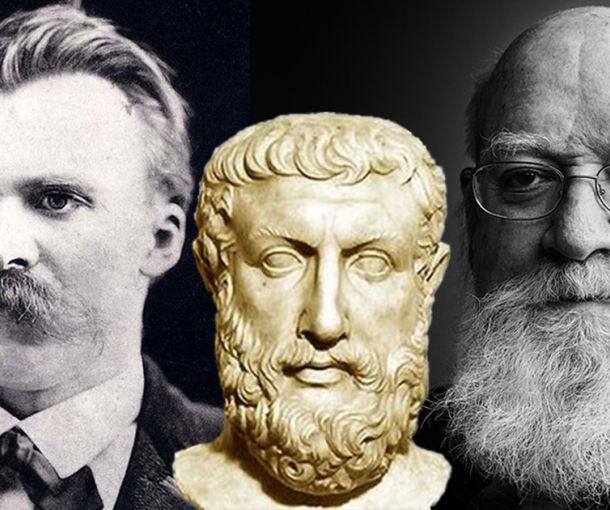The Soul and Parmenides

Things are One and Being is truth.
The pre-Socratic philosopher Parmenides, who is thought to have been born between 540 and 515 BCE (dates are contested between Plato and Diogenes) is often dubbed “the father of metaphysics” and the first noted dualist. As the first a priori philosopher, Parmenides developed the modality of necessity, positing that true knowledge is obtained by reason alone, and largely rejecting a posteriori knowledge, or sense experience, due to the senses being misleading or causing false judgement.
In Parmenides’ poem, On Nature, he states that all knowledge should begin with “it is” and proceeds with reasonable deductions to explain being. This mental exercise yields certainty of truth (way of truth), and therefore is superior to empirical knowledge that can only offer a high probability of truth (way of seeming).
According to Parmenides, empirical knowledge (way of seeming) contain premises that pre-assume contradictions; concepts of polarity or degrees of separation such as light and dark, heavier and lighter, hot and cold—rather than concrete “it is” terms that are reconciled by reason. In order to explain sensible objects (things coming to be, or becoming), Parmenides believes he would be “starting” from a flawed premise which would always lead to a flawed conclusion or incomplete explanation of the sensible object. However, the inconsistency between reasonable and sensible is that Parmenides can never “prove” his reasonable deductions without physical evidence for his statements. His logos hinging on “modality of reason” becomes more of an opinion or belief backed by logical deduction, rather than an sensible fact. This way of thinking about existence and being (or rather, a great cosmic universe [heaven] where things exist in their perfect conceptual form) has perplexed philosophers for a millennia and gave credence to Plato’s Forms and theological arguments later perpetuated by branches of Abraham.
The more I’ve studied Parmenides, the more I am deeply captivated by his philosophy. Parmenides by Plato is superb—almost philosophical sorcery—the paradoxes he presents and his ability to move up and down, in and out of his deductions is masterful. It’s a great tragedy that a complete account of Parmenides’ On Nature has not survived time, and we’re only left with bits and pieces of a poem that lacks complete translation. In my opinion, this man was an incredible genius on par, if not exceeding, the likes of Socrates, DaVinci, or Einstein. Parmenides seemed to truly grasp something that defies (or exceeds) language; though he only had “ignorant two-faced mortal experience” to express himself.













